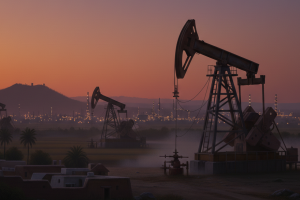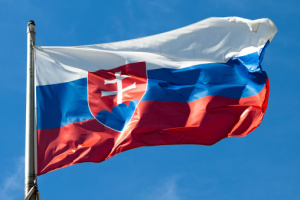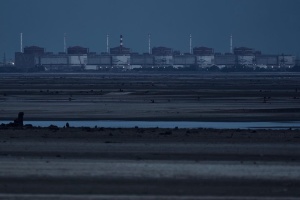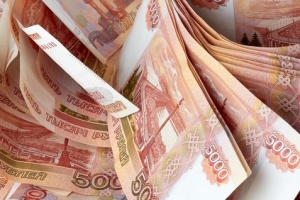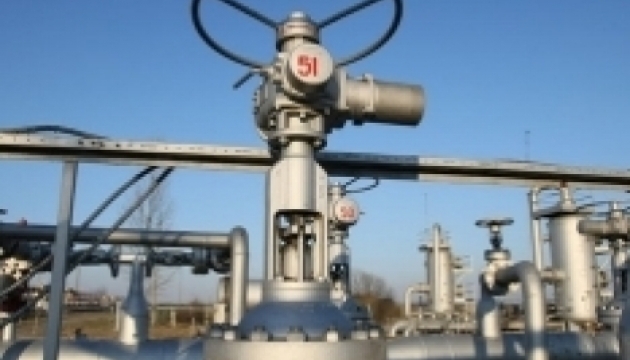
Gas transit via Ukraine after 2019
On July 17, 2018 in Berlin, Ukraine, Russia and the European Commission held trilateral talks on gas transit through Ukraine for the period after 2019. Although this time the Russian side was not to able to participate fruitfully in drawing up a framework concept for a new contract on gas transit through the territory of Ukraine, the consultations laid the grounds for the future negotiations as the parties agreed to meet every six to eight weeks.
Now, Gazprom is doing everything it can to delay negotiations on a transit contract. Such actions are aimed only at one thing – to create a time lag for launching Nord Stream 2 and wait for presidential elections in Ukraine that may change the country's political course in accordance with the Kremlin's perceptions. The objective of this short paper is to provide a cursory overview of relations of the two companies and forecast the possible results of gas negotiations.
The transit contract in force signed between Gazprom and Naftogaz in the presence of the then prime ministers, Yu. Tymoshenko and V. Putin, on January 19, 2009 is about to expire on December 31, 2019. Presidential elections in Ukraine should be held on March 31, 2019. The reality is that even under a hypothetical scenario of the best prospects for Nord Stream 2 and TurkStream, these pipelines still would not be able to run at full capacity of 55 and 31 bcm respectively before the expiration of the current transit contract between Gazprom and Naftogaz. That's why under any scenario Gazprom will have to prolong the existing contract or conclude another one with Naftogaz on gas transit via Ukraine.
The prospects of the concurrence of American LNG in the European market are getting more obvious with the last statements of D. Trump in Helsinki, more concrete and outlined becomes the threat of imposing sanctions on Nord Stream 2 with the bill (ESCAPE Act) tabled by Republican Sen. John Barrasso. Moreover, some analysts suggested that domestic bi-partisan outrage over Trump siding with Putin on election meddling and other critical issues in Helsinki could backfire with more sanctions and tougher stance on Russia in Washington.
Gazprom as nobody else is interested in the prolongation of the transit contract, but also more as anybody is interested to sign it up before deadlines, at the height of the heating season, not earlier than in autumn 2019, creating a threat of gas disruptions for European partners, in order to push through in a hurry the profitable contract terms. Meanwhile, the main task of Gazprom for the heating season 2018 – 2019 will be as usual – to discredit Ukraine as an unreliable partner. For the next year or one-and-a-half years, the Russians are going only to pretend to negotiate and "learn conditions" in order to drag out time. For this purpose, they try to bundle gas transit with possible amicable agreements related to the disputes, considered by the Arbitration Institute of the Stockholm Chamber of Commerce, as Putin said in Helsinki.
The rest is nuances. The main proposal of a Ukrainian delegation in Berlin was to make the European rules apply to gas transit via Ukraine. This is an issue for the tariff on the gas transit, booking of capacities, procedure of exchange of information, etc. According to the existing transit contract of 2009, a transit tariff is a subject of agreement, besides it changes with specific correlations to the gas price and inflation. It has no relations with market conditions.
On July 13, 2018, Naftogaz submitted a proposal on changes to the current methodology for calculation of tariffs for the natural gas transmission services to the National Commission for State Regulation on Energy and Utilities of Ukraine, and this proposal was also tabled to negotiating parties in Berlin. The proposed changes are aimed at bringing the methodology into line with the requirements of Commission Regulation (EU) 2017/460, which was adopted in March 2017 and established a network code on harmonised transmission tariff structures for gas. Implementation of the new methodology could result in a reduction of the cost of gas transit via Ukraine by 2.3 times starting from 2019 if the condition of the full load of transit capacities of the Ukrainian GTS is met. This will help make transit through the Ukrainian GTS cheaper than through Nord Stream 2.
The new tariff setting methodology should apply for the new five-year regulatory period starting from 2019. So, in other words, the silhouettes of the new transit contract have already been outlined by the Ukrainian party – it should be for five years with a reduction in the cost of gas transit via Ukraine by 2.3 times.
According to the new methodology, Naftogaz proceeds from the opposite expectations - full load of transit capacities of Ukraine if Nord Stream 2 and the second line of TurkStream are not built. Also, this scenario could be realized in case of unblocking by Russia of the transit of gas produced by independent Russian companies and companies from Central Asia. Based on this scenario, the estimated average cost of transit through the territory of Ukraine for the new regulatory period will be about $2.17 per 1,000 cubic meters per 100 km (with VAT and fuel gas). Since 2016, Ukraine has increased the tariff for transit up to $4.5 per 1,000 cubic meters per 100 km due to the failure of the Russian Federation to fulfill contractual obligations on the pumped volumes of gas at the level of 110 billion cubic meters, but Gazprom continues to pay for the transit of its gas to Europe at old rates. Naftogaz's proposal to reduce the tariff for the transit of gas through the Ukrainian territory looks quite logical. This will leave less economic preconditions for the construction of Nord Stream 2.
In parallel, on July 6, 2018 Naftogaz submitted a new claim for revision of the tariff in its transit contract with Gazprom for the period 2018-2019 to arbitration in Stockholm. Its preliminary monetary value is $11.6 billion. The existing transit contract between Naftogaz and Gazprom allows the parties to request a revision of the tariff in case of significant changes in the European gas market and if the tariff does not correspond to the level of tariffs in Europe. However, as mentioned by the Ukrainian side, this claim for $11.6 billion, unlike the claims on which the Awards have already been rendered by the Stockholm tribunal, could be settled during future negotiations. That is, the main goal of the Ukrainian side here was the introduction of a new bargaining tip for negotiations.
According to the European Commission, in 2017 the volume of gas transit to the EU was as follows: Ukraine - 44%, Nord Stream – 30% and Belarus 24%. That means that Ukraine remains the main route of supply of Russian gas to Europe. The volume of gas transit through the territory of Ukraine in 2017 reached a record high for the last six years and amounted to 93.5 bcm, or 14% more than in 2016 (including 14.1 bcm – the volume of gas, which was reversed to Ukraine from Europe. That is, net gas transit from Russia via Ukraine was 79.4 bcm). The main reason for the increase in transit in 2017 was decreased EU gas production, growing demand for natural gas in Europe, especially in the first month of 2017 and in summer due to unusual heat and low electricity generation at European hydroelectric plants.
The speculative "consensus forecasts" of the growth of natural gas demand in Europe are used by Gazprom as an argument to build Nord Stream 2, as it did arguing the construction of Nord Stream 1 before 2010. In 2011, Alexei Miller planned that in ten years the demand for Russian gas in Europe would increase by another 200 bcm, that is in 2021 the demand for Russian gas in Europe would reach 340 bcm. We consider this prognosis as speculative one. In 2017, total EU gas demand increased by 6% to 491 bcm, reaching the highest level from 2010, of which only 164.8 bcm was imported from Russia. So gas demand in Europe slightly recovered from decline of 2010-2014, but the transit through Ukrainian territory has fallen tree-fold and was redirected through Nord Stream 1.
Negotiating about possible 10-15 bcm of transit means to drive to a deadlock, as a point of profitability of the Ukrainian GTS starts from 60 bcm of transit. If Gazprom constructs additional bypass routes, it should give a possibility of the gas from Central Asia, in particular Turkmenistan, Uzbekistan, Kazakhstan, to flow through the Russian territory and further through Ukraine to Europe. Now, Russia has de facto blocked this option.
The logical question is what's next? Vice-President of the European Commission Maroš Šefčovič invited Russia and Ukraine to continue the discussion on transit issues at the level of experts in September, and a new trilateral meeting in the same format as of July 17 should take place in October. However, it is a low probability that the parties could reach any agreement earlier than autumn 2019. Naftogaz, with the support of the European Commission, could be more active in demanding payment of debt from Gazprom, threatening the arrest of the European property of the Russian monopoly. Russia will most likely try to enter the issue of $2.56 billion "inside the brackets" of the transit negotiations. The main compromise that exists is to settle the issue of a new claim of $11.6 billion. The only thing that will matter for these negotiations is whether Trump will be ready to go further than simple factual findings that "Germany is a captive to Russia, because of getting so much energy from it," and launch this time a real blistering attack on the new pipeline in the form of sanctions, as Russian gas became Europe's most divisive commodity.
Oksana Ishchuk, an analyst of the Ukrainian think-tank, Centre for Global Studies Strategy XXI

